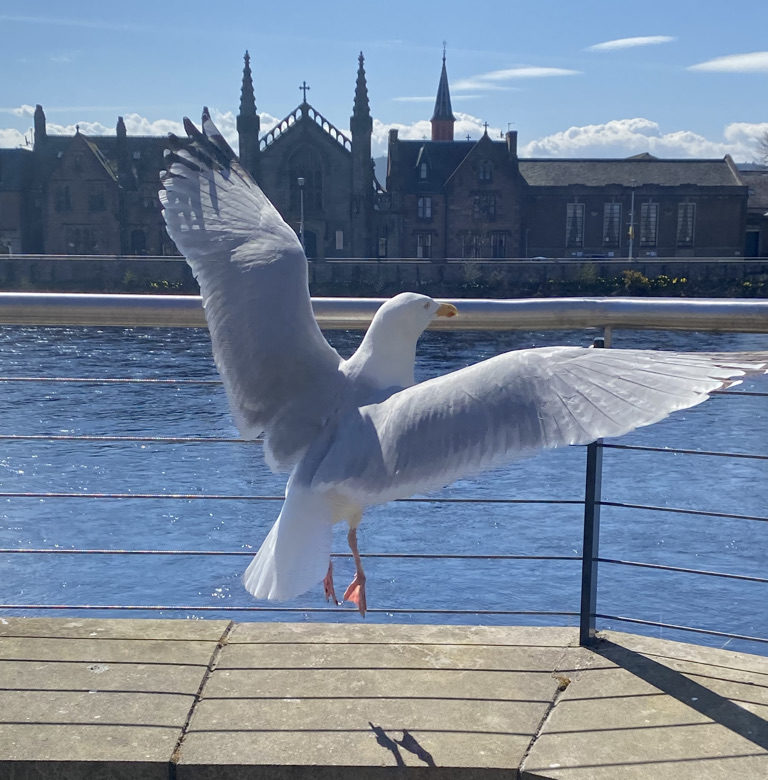I believe there are two major questions that we all need to ask ourselves when we feel stuck. These questions help us to gain clarity and understand what can and cannot be controlled. Finding clarity is big. It may not “fix” the problem in the way that we want it to, but it nevertheless provides a type of ineffable relief. Additionally, when we feel clear about something, we are able to stay focused on it, and it can becomes easier to move forward.
These questions are not meant to fix everything or to be a magic wand of sorts – it’s just a tool to gain clarity. I also caution against implementing any sort of cognitive tool while experiencing intense emotions. Usually that is not a good time to engage in mental activity, and the first thing we always need to do is to try and calm down our nervous systems. These questions are best used when we feel calm and have space, time, and energy to reflect on a stuck place or problem.
The two questions are:
- How would I like the situation to change?
- How would I like to feel about the situation?
There are many ways we could possibly answer the first question, but essentially, they would fall into the following two categories:
There is nothing I want to change, or,
There are one or more things I want to change.
Regardless of how we answer the first question, we must also answer the second. Given that we are feeling stuck in some way, it’s highly probably that part of our “stuckness” lies in how we are feeling about the situation, rather than just the situation itself.
When we identify the exact way that we would like the situation to change, we must be willing to take a realistic look and ask ourselves if the change we are wanting is possible. For the purposes of this exercise, which is to gain more clarity, it’s totally fine for the change we want to be impossible. It’s still helpful to identify what that is, but we must be able to go a step further and identify if it is or is not possible.
For example, if I am terrified of public speaking, I might want to change the people in the audience – I would want to change the situation so that I could assure myself that everyone in the audience thought really highly of me. Unfortunately, this isn’t possible to do. And even if everyone in the audience somehow really did think highly of me, there isn’t a good way of knowing this because we can’t reliably read people’s minds.
One more example is if I am angry with my spouse and I don’t know how to repair the relationship, I might want my spouse to be able to comfort me in the exact way that I need without me having to tell them exactly what I need. Along the same lines of not being able to read someone’s mind, other people cannot read ours, and so we cannot change someone through telepathy alone.
Both of these situations have a theme in common: wanting external circumstances to change that we don’t have control over, and in the case of the audience thinking highly of us, are unable to even verify if it were true. If we say, “I will only feel better if these things change,” and we are only focused on the things we have no control over, this is a big recipe for feeling more stuck.
What if our answer to the first question is highly possible? What if we know how we want things to change, and we know that those changes are totally possible and within our power, but we still feel stuck because we don’t have the motivation, self-confidence, or hope to carry them out? In other words, what if we don’t feel good about the changes we want to make?
We might feel so depleted, depressed, or hopeless, that we can’t drum up the motivation to actually do what is needed for the change to happen. In this case, it’s really especially important to focus on Question #2. Knowing how we would like the situation to change is important, but maybe what is keeping us stuck is feeling hopeless that any real change will happen or fearing how other people might think of us or respond. We might get clear, then, that what we really want is to feel more hopeful, confident, and less fearful.
There are so many permutations of how we could answer these questions and I am not going to go through them all. Feeling stuck is very uncomfortable, unmotivating, and frustrating, and I find that asking these questions in and of themselves can create a small sense of movement.
If you find that you don’t know how to answer to either question, that’s okay, but don’t leave it at that and give up. Keep coming back to these questions and really get clear on what it is that you want. When I did this exercise in regards to feeling anxious in social situations, I came back with some pretty unrealistic statements for Question #1:
I want to know with 100% certainty that people see the best in me and give me grace for my mistakes and are connected to the best parts of themselves when we are together.
Seeing these statements written out on paper made it easier to accept what I didn’t have control over (other people’s thoughts, beliefs, and motivations), and focus more on Question #2, how I wanted to feel:
I want to feel confident around others, self-aware, grounded, happy to be me. I want to love myself no matter who I am with and see the best in myself. I want to give myself grace for my mistakes and be connected to the best parts of myself when I am with other people.
Oftentimes we conflate these two questions. We think, “In order for me to feel better about the situation, the situation needs to change in this way.” As previously mentioned, if we are wanting the situation to change in a way that we have no control over and attaching our mood to whether or not it changes, we have just created a stuck situation for ourselves. It’s as if “external factors” and “my emotions” are two opposing ends of a seesaw – if the situation goes down, I will go up. If the situation goes up, I go down. We don’t want that type of reactivity, because then our happiness and well-being will get thrown around by the tides of life.
What we may not realize is that we actually can feel differently independently of the situation changing. “Feeling differently” might not mean turning anger into ecstasy, but it can mean moving through sadness, frustration, on our way to letting go, and peace. “Feeling differently” also does not mean numbing out or ignoring what we are experiencing. This strategy will not ultimately leave us at peace, and even if we feel pretty Zen about everything by being numb to it, chances are, our inability to contact our own emotions will end up having a negative impact on our relationships.
Three things to keep in mind are:
These questions are not meant to solve your problems, only help you gain clarity about where and why you are feeling stuck. It might lead to a solution, but that isn’t the point. The point is to understand why you are feeling so stuck.
Keep repeating the questions, over and over again, until you get to a place where you are very clear. Don’t stop just because you get to a point where you say, “I don’t know.” Come back to it. Your questioning might look something like this:
How would I like the situation to change?
I want work to be better.
How would I like the situation to change to make it better?
I want people to like me and appreciate me.
How would I like the situation to change so that I know other people like and appreciate me?
I just want to know that they do.
Since I can’t read other people’s minds, how would I like the situation to change so that I truly know other people like and appreciate me?
I want my boss to tell me I am doing a good job, praise my work, and for my coworkers to tell me they really think highly of my work and are impressed by me.
Okay, great. How possible do I think this sounds?
Now that I say it, it sounds pretty improbable and also like I am needing a lot of reassurance that others are not likely to give me, even if I am doing a good job.
Moving onto the second question:
How would I like to feel about the situation?
I want to feel better.
How would I know if I am feeling better about the situation?
I would feel more comfortable at work, relaxed, motivated, satisfied and
proud of my contributions, and feel connected to my boss and my team. If I am unsure about something, I would feel confident that I can make a good-enough decision rather than panic.
One major purpose for doing this exercise is seeing that we can do a lot of changing, without having to make the situation change. It does not mean that we stop working towards our goals or deny our desires. For example, what if I am wanting to find a life partner but I am not currently in a relationship, and I feel very anxious and ashamed about this too. Questioning might look something like this:
- How would I like the situation to change? “I want to be married.”
- How would I like the situation to change to allow me to get married? “I want to find someone who I really resonate with on a deep level and want to spend time with doing both fun and mundane activities.”
- Okay, so I am not sure if I have control over finding this person or not. How would I like the situation to change to increase my chances of finding his person? “I want to put myself in situations where I can meet new people.”
- How possible do I think this sounds? “Not super possible because I feel so ashamed and embarrassed about not having a partner and I wouldn’t want to talk to new people.”
Moving onto the second question:
- How would I like to feel about the situation? “I want to feel confident.”
- How would I know if I am feeling more confident about the situation? “I want to feel relaxed and at ease when meeting new people. I want to keep in mind my own value and worth and feel really at peace whether or not I am currently dating someone. I want to enjoy moments by myself without constantly thinking that I am missing out on something, which makes me feel ashamed.”
I did not review here how we can make changes on an emotional level. In short, there is no one best way to do that. Sometimes journaling, meditation practices, speaking about this to a trusted friend, or spending time in nature can help bring new insights to mind and open us to new emotional experiences. Going to see a therapist can be a great resource for you too!
- Nina Tomkiewicz, LCSW
- To find out more about online therapy and how it can work with you and your schedule, send us a message here



